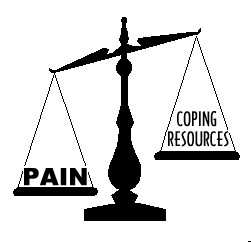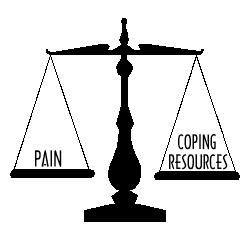The answer to this is it's a totally different fuel source. The fuels totally differ in the way in which they behave inside the engine.
A Petrol Engine is an internal combustion engine with spark-ignition. As its name suggests it runs on petrol, also known as gasoline.
A Diesel Engine is an internal combustion engine that runs on diesel. It is also known as a compression-ignition engine.
The main difference between petrol and diesel engine, Spark plugs are used to initiate the combustion process in petrol engines and diesel engine uses the heat of compression to self-ignite.
In a Petrol engine, the explosion process is:
Intake stroke – Air/fuel mixture is drawn in by falling piston
Compression stroke – piston goes up, mixture of fuel and air is compressed
Ignition/Expansion stroke – fuel/air is ignited through the use of a spark plug
Exhaust stroke – Burnt fuel/air is pushed out of cylinder by rising piston
In a diesel engine, the explosion process is:
Intake stroke – Air alone is drawn in by falling piston
Compression stroke – piston goes up, air compressed (heated in excess of 540°C)
Combustion stroke – fuel is injected (right time), ignition, piston goes down
Exhaust – Burnt fuel/air is pushed out of the cylinder by rising piston.
Diesel engines tend to have various advantages over other internal combustion engines, including:
- They burn less fuel than a petrol engine to do the same amount of work.
- They can convert over 45% of the fuel energy into mechanical energy, while petrol engines can only convert 30%. This results in a better mileage.
- They have high reliability and easy adaptation to damp environments due to the absence of a high voltage electrical ignition system.
- They do not have coils, spark plug wires, etc. The radio frequency emissions from these can interfere with navigation and communication equipment.
- The life of a diesel engine is generally about twice as long as that of a petrol engine.
- The parts used to create a diesel engine have increased strength.
- Diesel fuel has better lubrication properties than petrol.
- Diesel fuel is considered safer than petrol in many applications.
- Diesel fuel is less flammable than petrol and has reduced the risk of exploding.
- Diesel engines are immune to vapor lock, as diesel fuel does not release a large amount of flammable vapor.
- Diesel engines generate less waste heat in cooling and exhaust.
- Diesel engines can accept super- or turbo-charging pressure without any natural limit. Petrol engines inevitably suffer detonation at higher pressure.
- Diesel engines’ exhaust contains minimal carbon monoxide.
- Many diesel engines can easily run on biodiesel.
Some of the consequences of this are
No spark plug. Because the air is so hot, and so compressed at the top of the compression stroke that when the fuel is injected it burns straight away. Hence diesel can be correctly termed as "compression ignition" engines. A petrol engine is a "spark ignition" engine.This means no breakers, coil or h.t. leads to go wrong. This makes diesel immune to cold and damp that can affect petrol engines.
No throttle. The power is controlled by the amount of fuel which is injected. Most of the time a diesel is ultra-lean burn, except when the driver's foot is flat to the floor.
Electronic engine management is not necessary. Some modern diesel engines are gaining electronically controlled injection pumps, but the vast majority of them out there have purely mechanical pumps. If you're into DIY and don't trust the electronics found in most cars, then a diesel will be a relief. In fact, no electricity is required to make a diesel engine run, except for a simple fuel cut off solenoid so that you can switch the thing off! If your alternator stops working, then you're gonna get home in a diesel.
Easy turbocharging: Turbocharging a diesel is easier than turbocharging a petrol engine. One problem for a petrol engine is that if the compression ratio is too high, and the pressure in the cylinder gets too high during the inlet stroke, then the fuel/air mixture can start to burn too soon, while the piston is still on the way up. A turbo increases the pressure in the cylinder making this problem worse. With a diesel engine, there is no fuel in the cylinder during the compression stroke, so a turbo can be used to pack as much air in there as desired without causing problems.
The process is less affected by temperature. When a petrol engine is started from cold it needs loads of fuel to make it run properly. If you do short journeys all the time then you'll never get anywhere near the manufacturers stated fuel economy, and as emissions are proportional to fuel used, you'll be producing loads of pollution too. Diesel cars are great for short journeys because their efficiency is almost as high cold as hot. The downside is that in the winter you'll find that the heater is pretty useless, this is because the car is using so much less fuel that it takes ages to warm up.
Engine lasts longer. Because petrol destroys lubrication and diesel don't. Cold start-ups are a real killer for petrol engines 'cos of all that excess petrol floating about. That compression ratio of 22:1 gives brilliant engine braking, but the engine is hard to start. You'll need a good battery and starter motor.
Glow plugs are needed. These are electric heaters which are switched on for typically 5 or 6 seconds to make the engine easier to start. They take maybe 15 amps each (one per cylinder) and so give the battery an even harder job to do.
Less power. A 1.9-liter diesel engine will produce only about 70bhp, instead of the 110bhp from a 1.9-liter petrol engine. However my 1.9-liter diesel car produces about the same power as a 1.4-liter petrol engine but is still more economical, I still win! Alternatively, a 1.9 turbo diesel will give that 110bhp, and still give better fuel economy than the 1.9-liter petrol engine, especially if it's a DI diesel.
Different torque characteristics. A diesel won't rev much above 5000rpm (petrol engines will do 7000 or even 8000rpm), but its torque is all produced at low revs. Brilliant for towing, not so well for flat out 0-60mph times.
Heavy engine. A diesel engine is heavy. It can make a car seem more stable but can spoil the cornering/handling. It makes the steering heavy too. I wouldn't recommend buying a diesel car without power steering.
However, due to the above-mentioned reasons, diesel cars tend to cost more than petrol cars. Still, due to the better mileage, the cost may effectively be comparable over time. However, this will not be the case for people who do not drive their cars as much and over great distances. Also, while comparing cost, one must also keep in mind that over time the cost of the car will depreciate, i.e. go down.
The maintenance cost of diesel cars is higher than petrol cars. This is because consumables like engine oil and spares used in diesel vehicles are more expensive. The resale value of a used diesel car is higher than that of a petrol car. However, the life of a petrol engine is more than a diesel engine.
Note:
Maybe not if you're reading this from a part of the world where petrol is cheap and engines are big, in India Diesel is less than half the rate one has to expend for the same amount of petrol. In other European countries petrol can be even more expensive and in most diesel is significantly cheaper and a better option.
Buying a petrol or diesel car depends upon the buyer's use and need. Also, you have to look the current circumstances, I mean the price comparison of both (petrol & diesel). It's not that much difference. On the other side difference between the prices of both variants is too much.
If you’re traveling is not that much then you can go with petrol that I personally recommend.


 Don't accept it if someone tells you, "That's not enough to be suicidal about." There are many kinds of pain that may lead to suicide. Whether or not the pain is bearable may differ from person to person. What might be bearable to someone else, may not be bearable to you. The point at which the pain becomes unbearable depends on what kinds of coping resources you have. Individuals vary greatly in their capacity to withstand pain.
Don't accept it if someone tells you, "That's not enough to be suicidal about." There are many kinds of pain that may lead to suicide. Whether or not the pain is bearable may differ from person to person. What might be bearable to someone else, may not be bearable to you. The point at which the pain becomes unbearable depends on what kinds of coping resources you have. Individuals vary greatly in their capacity to withstand pain. Now, while this page may have given you some small relief, the best coping resource we can give you is another human being to talk with. If you find someone who wants to listen, and tell them how you are feeling and how you got to this point, you will have increased your coping resources by one. Hopefully the first person you choose won't be the last. There are a lot of people out there who really want to hear from you. It's time to start looking around for one of them.
Now, while this page may have given you some small relief, the best coping resource we can give you is another human being to talk with. If you find someone who wants to listen, and tell them how you are feeling and how you got to this point, you will have increased your coping resources by one. Hopefully the first person you choose won't be the last. There are a lot of people out there who really want to hear from you. It's time to start looking around for one of them.







